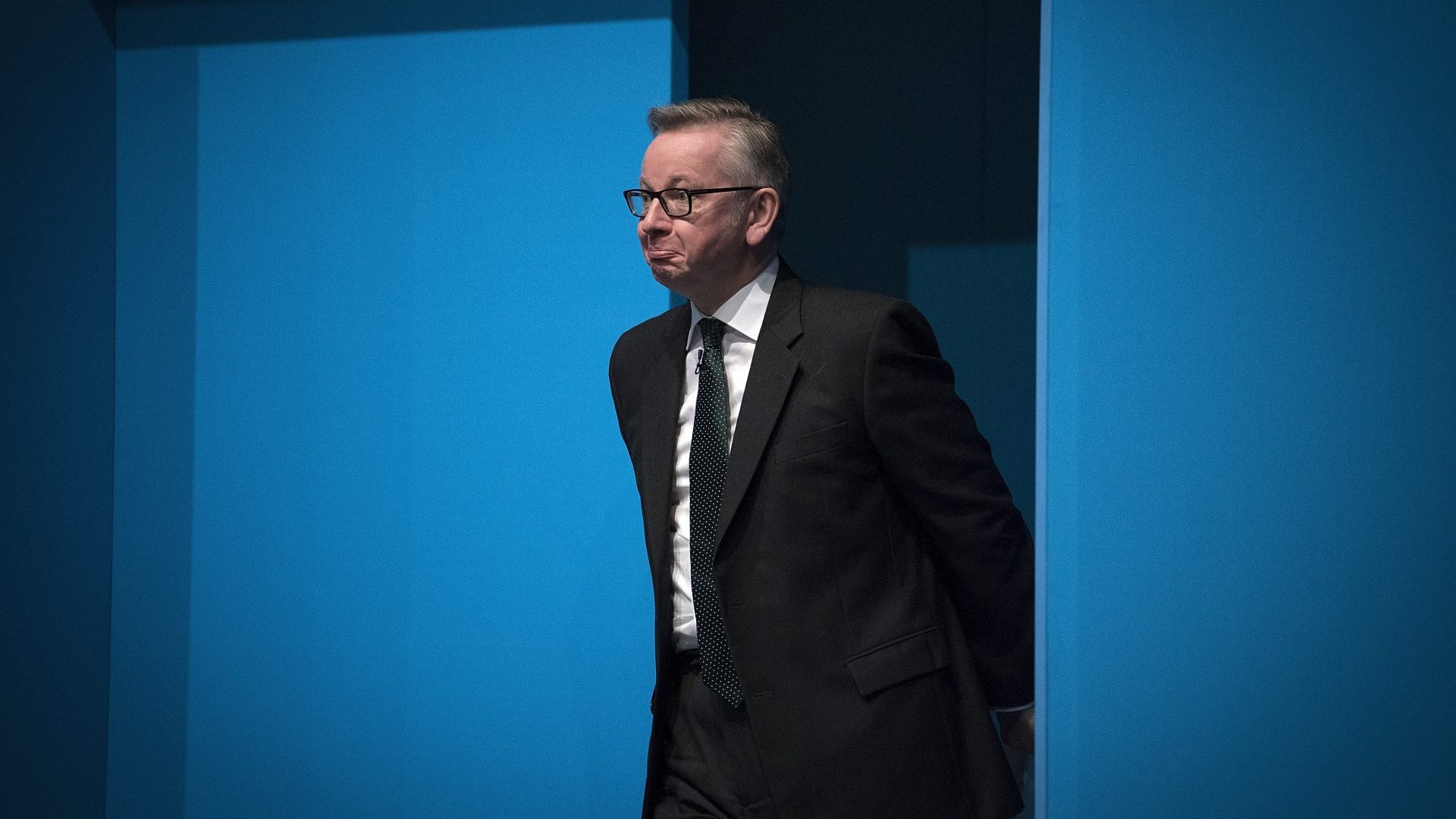The phrase “youth mobility” has an odd ring: it’s not the way a Gen Z would normally describe their plans to go and work in a bar in Greece for the summer. It sounds very Brussels, like a bad translation of a French discussion paper.
Perhaps that’s one of the reasons Keir Starmer is so unenthusiastic about it. In Liverpool, his conference speech mentioned “control of migration”, and just in case anyone was in two minds about what that meant, home secretary Yvette Cooper spelled it out on BBC Radio 4’s Today, saying of the European Union’s proposed youth mobility scheme: “We don’t think this is the right approach. The UK voted to leave free movement. We are not going back into free movement.”
When Starmer visited Berlin in August to announce a “reset” of our relationship with the EU, chancellor Olaf Scholz made it clear that youth mobility was important to Germany. Starmer did not entirely rule it out, but he didn’t endorse the suggestion either.
The problem for the PM is that it is just as important to the European Commission as it is to Scholz. Since Britain wants a reset in relations to smooth trade, the commission can afford to set its terms – and one of them is a youth mobility scheme.
“If the UK is to achieve any of its aims, it will need to take the EU’s ask seriously,” says David Henig, the director of the UK trade policy project. “Not having done so to date is regarded by the EU as putting a question mark on the reset.”
Labour dismissed the commission’s previous youth mobility proposal, which was seen as ill-timed. It is reportedly drawing up plans for a new one.
So what kind of scheme might Britain be willing to accept? And how can it avoid the negotiating traps the Tories fell into during their agonising wrangling after the referendum?
First, it’s important to understand that Britain holds the weaker hand, says Dmitry Grozoubinski, a former trade negotiator and the author of Why Politicians Lie About Trade and What You Need to Know About It. For a start, there are no tariffs to argue over.
He says: “The UK is saying to the EU: ‘Can you make it easier and less hassle-y to sell you stuff?’ For the EU, that’s not a natural exchange because they just don’t care as much. In order to make that transaction make sense, they have to make extra asks.
“If you think about a negotiation as dividing up what’s on the table, it’s a way of adding things to the table for the EU. It’s something they’d like, and there’s potential.”
Second, the commission will not take kindly to the UK trying to negotiate bilateral mobility deals with individual countries, even though this is legally possible. Germany considered it, but changed its mind after realising it would damage relationships with the rest of the EU.
“The principle of equal treatment is a cornerstone of the EU’s legal and political framework,” says Prof Monika Brusenbauch Meislová of Masaryk University. “The commission will aim to prevent situations where some member states feel marginalised or disadvantaged. In other words, [it] would be particularly wary of any outcome that could lead to perceptions of inequality or unfairness.”

This might seem unfair on Britain, given that lots of EU countries have their own youth mobility schemes with favoured non-EU nations. France has an arrangement with 17 countries called Young Professionals. Others have special routes for au pairs and teaching assistants, or science scholarships to Germany. But these are one-way, limited and have a specific purpose.
Despite our problems, Britain is a desirable destination and EU countries want their young people to be able to come here. Less well-off member states don’t see why their citizens should be treated differently from the Germans.
Lastly, Britain should avoid setting “red lines” before or during the negotiations, however tempting it might be to try to fend off the Daily Mail and GB News. This is because youth mobility is a flexible concept and there are ways of addressing the objections that Leavers are likely to make.
In fact, the UK already has a youth mobility scheme of its own. It covers Australia, Canada, New Zealand and South Korea (for under-35s) and, somewhat randomly, Andorra, Iceland, Japan, San Marino and Uruguay (for under-30s). The Uruguay scheme is mutual, so there are 500 little-advertised places up for grabs each year for Britons who want a working holiday in South America.
There’s also a separate allocation of 2,400 visas for young Indians, and a ballot for Hongkongers and Taiwanese. The youth mobility visa lasts for two years and applicants must have at least £2,350 in their bank account and pay a health surcharge of £776 a year.
This is less generous than the scheme the EU proposed earlier this year. That would have let people stay for four years and ruled out Britain levying a healthcare surcharge, although it did allow us to demand health insurance and proof that someone could support themselves.
But what the EU really wants to change is the fact that EU students who study at a British university must now pay the full international rate, which is an average of £22,000 a year. This is much higher than the EU equivalent. Any youth mobility deal would almost certainly have to come up with a better deal for EU students.
And that’s a big problem. Universities are already subsidising their loss-making British undergraduates by bringing in more foreign students, who pay a lot more.
If EU students pay lower fees, institutions will have to either jack up international fees even further or simply turn down EU applicants. But that would go down very badly in Europe. It undermines the whole point of a youth mobility scheme.
The alternative, of course, would be for the government to meet the extra costs of welcoming EU students. Good luck with persuading the Treasury to do that.
On the other hand – as the commission reminded Britain in its original offer – there is always the possibility of the UK rejoining the Erasmus+ scheme.
While many Erasmus participants now do traineeships and strictly speaking it is open to any age, students generally spend up to a year of their degree at a university abroad. They receive a small grant for the cost of travel and moving, but do not pay fees.
The UK would undoubtedly have to pay some money to the commission to rejoin Erasmus, but because the arrangement is short-term and reciprocal it is unlikely to cause as many problems for universities. Would the EU be prepared to soften its position on fees if we agreed to Erasmus? Maybe.
“The commission’s original ask for a mandate was too ambitious in areas such as the NHS surcharge and university fees,” says Henig. “These may not appear in a revised version.” He thinks the “nub of the negotiation” will be how a youth mobility scheme operates, whether there are quotas on the number of participants, and how those are allocated between member states.
The UK is likely to be keen on a quota. Usually, about twice as many people came to Britain as left for Europe on Erasmus. That was one of the reasons we quit the scheme after leaving the EU.
More broadly, the new government is just not terribly interested in encouraging young people to go abroad. Shutting down the far right and any charges of elitism means that “serving working people” has become the priority.
The PM himself has never studied or lived abroad. “I don’t think that Starmer is either personally invested or very keen to have such deals with the EU, which might threaten support in different parts of the country who mistake this for free movement,” says Henig. “So the domestic politics will be tricky, and the negotiations with the EU difficult.”
This particular legacy of the Brexit years – a dogged belief that Britain ought to be enough for anyone – seems very hard to shake off. That youth mobility is for the Waitrose class and the gap year types. The EU doesn’t see it that way.
“They don’t view it as a middle-class perk,” says Grozoubinski. “It’s a kid from a village in Poland going to work as a plumber’s apprentice, coming to work and earning enough to open his own business at home.” But youth mobility “is great for British kids, whether it’s tending bar in Germany or working on a farm in the Netherlands.
“I’m a huge fan of these things. I think that the way we build a better world is by getting to know each other.” The participants coming to Britain will be “healthy young people who will not take the most desirable jobs in society, and will then leave. They’ll probably spend all the money they earn in the country. Given the prohibitive cost of London to EU kids, they’re going to be in parts of the UK that are struggling to attract young people and inward investment.”
Close your eyes and it is just about possible to imagine a world in which Britain agrees to rejoin Erasmus and allow a strictly limited number – say, 100,000 – EU citizens to come to Britain for a maximum of two years. To those who will argue that would amount to freedom of movement, the government should point out that more generous schemes are already open to other countries. Do we think that they enjoy freedom of movement with the UK?
The concept of youth mobility makes Labour nervy. But the reality might well be far less controversial than they fear.




